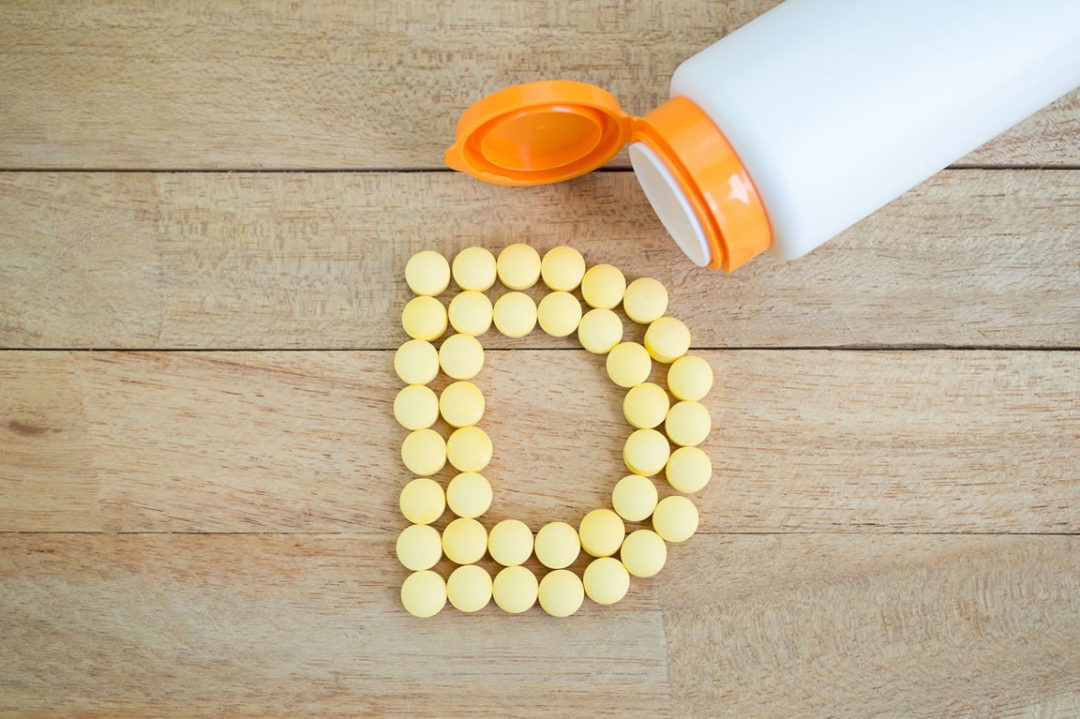We’ve known about the role of vitamin D in bone strength for some time. But new research is showing the importance of vitamin D in preventing cancer. Sex hormones are made from the stuff. Populations that don’t get much sunlight (and are low in vitamin D) are at greater risk for multiple sclerosis. And research has shown that physical performance — especially in older folks — is significantly affected by their vitamin D status.
Even weight loss is affected by vitamin D. One study showed that those with the lowest levels of vitamin D had the hardest time losing weight (1). All this might not be much of a problem except for the fact that more than 25 percent of the population — and I’m beingwildly conservative — is vitamin D deficient.
There is a massive amount of research showing that low levels of vitamin D increase the risk for any number of diseases you don’t want to have. Even the generally conservative WebMD points out that low levels of vitamin D have been associated with increased risk of death from cardiovascular disease, cognitive impairment in older adults, severe asthma in children and cancer. They also point out that it may play a role in prevention and treatment of type l and type 2 diabetes, hypertension, glucose intolerance and multiple sclerosis (2). What’s more, when people are low in vitamin D levels it affects their mood, ability to lose weight, physical performance, immune system function and even their chances of dying. A 2008 study found that low levels of vitamin D increased the risk for death from any cause — called the mortality risk — by a whopping 26% compared to those who had “optimal” levels in their blood (3).
Sadly, there’s not much vitamin D in food except for foods that are “fortified” with it, and those tend to use an inferior form of vitamin D calledergocalciferol(vitamin D2). What’s even more ridiculous is that manufacturers frequently fortify non-fat dairy foods (skim milk, non-fat yogurt) even though vitamin D is a fat soluble nutrient — how much you absorb without fat is anyone’s guess. It’s my strong opinion that most people would benefit from supplementation with vitamin D, but it needs to be in the D3 form (choleocalciferol), which is the form all high-end supplements use. Speak to your health practitioner about the best dose to use, and ask to be checked for vitamin D levels at your next blood test. The test you want is called a 25(OH)-D test, and it’s inexpensive and important.
- http://www1.umn.edu/news/features/2009/UR_CONTENT_165066.html
- http://www.medicinenet.com/script/main/art.asp?articlekey=170640
- http://archinte.ama-assn.org/cgi/content/abstract/168/12/1340
Jonny Bowden, “the Nutrition Myth Buster” is a board-certified nutritionist and the
 best-selling author of 15 books including The Great Cholesterol Myth, Living Low Carb, the 150 Healthiest Foods On Earth and Smart Fat. To learn more about healthy living, motivation and nutrition, visit jonnybowden.com.
best-selling author of 15 books including The Great Cholesterol Myth, Living Low Carb, the 150 Healthiest Foods On Earth and Smart Fat. To learn more about healthy living, motivation and nutrition, visit jonnybowden.com. Note: The statements presented in this column should not be considered medical advice or a way to diagnose or treat any disease or illness. Dietary supplements do not treat, cure or prevent any disease. Always seek the advice of a medical professional before altering your daily dietary regimen. The opinions presented here are those of the writer.
Posted on WholeFoods Magazine Online, 1/17/17










